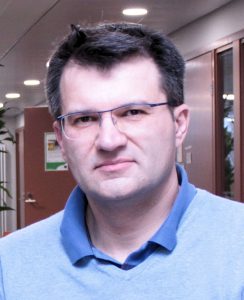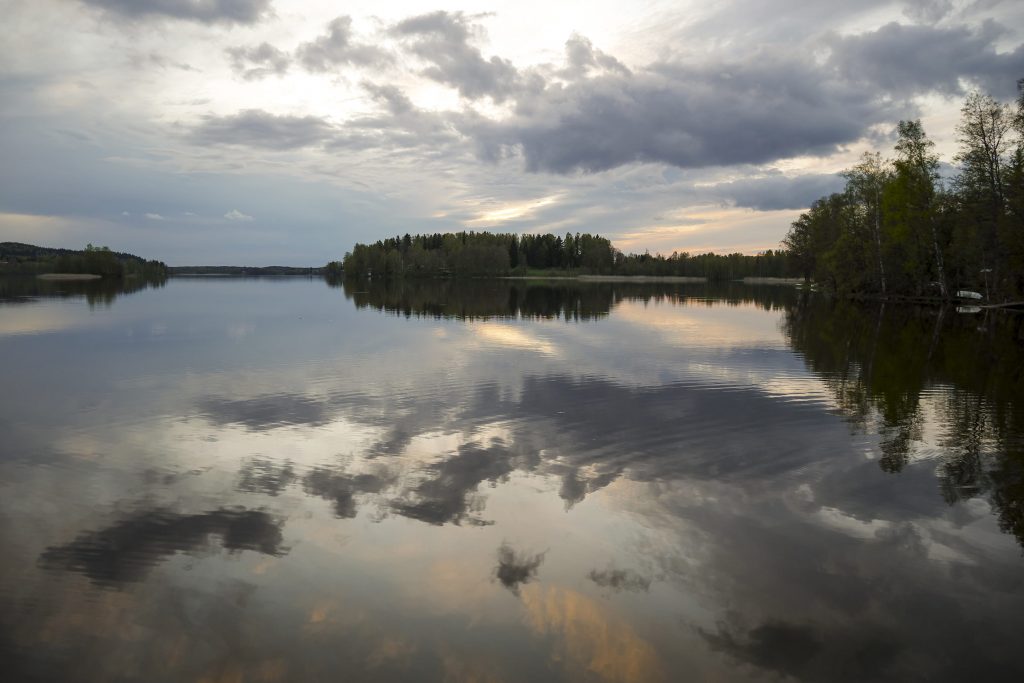 My name is Geran-Marko Miletić. I am a sociologist and I work as a senior scientific associate at the Institute of Social Sciences Ivo Pilar in Zagreb, Croatia. My research interests are broadly concerned with the sociology of settlements and social aspects of local development. However, neighbourhood social cohesion, local social relationships and community wellbeing in areas with larger density of second homes are topics that have been attracting me for a long time. So far, I have been involved in two projects regarding second home development in Croatia. In the first project, conducted 15 years ago, I was engaged as a young researcher, and that project provided the starting point for my PhD thesis titled ‘Social Aspects of Second Home Use in Croatia’. The second project titled ‘Second Homes and Social Sustainability of Local Communities in Croatia’ ended in 2017, and I was the principal investigator for this project.
My name is Geran-Marko Miletić. I am a sociologist and I work as a senior scientific associate at the Institute of Social Sciences Ivo Pilar in Zagreb, Croatia. My research interests are broadly concerned with the sociology of settlements and social aspects of local development. However, neighbourhood social cohesion, local social relationships and community wellbeing in areas with larger density of second homes are topics that have been attracting me for a long time. So far, I have been involved in two projects regarding second home development in Croatia. In the first project, conducted 15 years ago, I was engaged as a young researcher, and that project provided the starting point for my PhD thesis titled ‘Social Aspects of Second Home Use in Croatia’. The second project titled ‘Second Homes and Social Sustainability of Local Communities in Croatia’ ended in 2017, and I was the principal investigator for this project.
Interest in this topic has brought me to researchers from the Ruralia Institute, first to Dr Torsti Hyyryläinen whom I met at the European Society for Rural Sociology conference in Krakow and later to Mr Manu Rantanen, with whom I have been exchanging ideas and discussing second home phenomenon in Finland and Croatia for some time. Gradually, my discussion with Manu evolved into a collaboration and resulted in a study trip to Croatia organised within the project “South Savo – A Sustainable Hub for Holiday Homes”. During the study visit, we had a seminar that encouraged further interest in this topic and further collaboration.
And the Ruralia Institute Visiting Scholars Programme provides ideal platform for sharing knowledge and developing a comparative perspective. That is why I was so excited when I got the mail with announcement that my application was accepted. The visit was scheduled for the late winter 2020. I prepared myself for the trip, got some winter equipment, read a lot of tourist guides and web pages about local history as well as about countryside, lakes and forests.
Although I did some serious homework, I was again surprised with the attractiveness of the town of Mikkeli and surrounding area and especially with hospitality of its people. Researchers at the Ruralia Institute and the whole Mikkeli University Consortium welcomed me warmly. Some of them made a lot of effort to make my stay more pleasant. I spent great time talking with them during lunch breaks and I was even taken to see a play in local theatre. The play about the life of Risto Ryti, important figure in the national history, was a really unique experience for me. Once again it was proved that the language is not an obstacle for enjoying an outstanding performance.
Concerning the work during my study visit, after I gave presentation of my researches both in Mikkeli and Seinäjoki, Manu and I engaged in identifying the key similarities and differences in second home development in Croatia and Finland. These insights are important for developing a context for further analysis of the role of second homes in sustaining services in rural areas. Previous researches showed that second home development, besides changing the landscape, also affects local economy and initiate specific social dynamics in a host area. The intensity of this interrelation of second home and local social and economic development is site-dependent, with the supply and demand of rural services being an important intervening variable. And what bothers us the most is how to involve second homes more in local development.
Manu’s ongoing project ”South Savo – a Forerunner in Multilocational Dwelling 2019–2021” – that is aiming to create a cooperation model and development platform in order to strengthen partnership between major stakeholders in second home development – provided an excellent framework for my study visit. I was particularly impressed with the ambitious plan to develop a digital mobile application as a tool for enhancing communication with second home users. I had fruitful discussion considering project activities with both Manu and Ms Tuula Pihkala from Mikkeli Development Miksei Ltd, the Lead partner of the project. We went together on a field trip to Ristiina, a cottage-rich location. There I had an opportunity to visit a traditional second home. I got insight into authentic Finnish mökki culture and I learned what it is like to be a second home user in Finland. We had more ideas for field trips that would include discussions with second home owners and other stakeholders. But, unfortunately, a pandemic sparked by a novel coronavirus suddenly interrupted our plans. The support and care given by all Ruralia Institute’s employees helped me to cope with uncertainties that emerged. One thing from that period that I will definitely remember for the rest of my life is korona, a game also known as Baltic billiard that I played with Torsti. If you were wondering about the outcome, he won. Eventually, I had to leave Finland earlier than I planned. However, our cooperation continues. Distance working is something we are all used to.
Finnish mökki culture and I learned what it is like to be a second home user in Finland. We had more ideas for field trips that would include discussions with second home owners and other stakeholders. But, unfortunately, a pandemic sparked by a novel coronavirus suddenly interrupted our plans. The support and care given by all Ruralia Institute’s employees helped me to cope with uncertainties that emerged. One thing from that period that I will definitely remember for the rest of my life is korona, a game also known as Baltic billiard that I played with Torsti. If you were wondering about the outcome, he won. Eventually, I had to leave Finland earlier than I planned. However, our cooperation continues. Distance working is something we are all used to.
Finally, I am grateful to the Ruralia Institute for providing me the scholarship. And special thank you goes to Manu for everything he did to make my visit pleasant and productive.
Geran-Marko Miletić was a visiting scholar in University of Helsinki, Ruralia Institute.